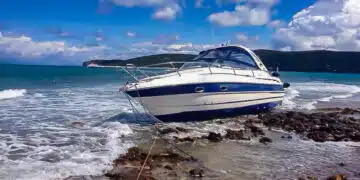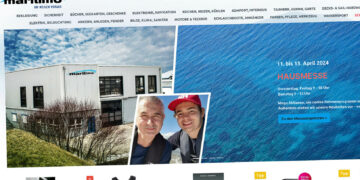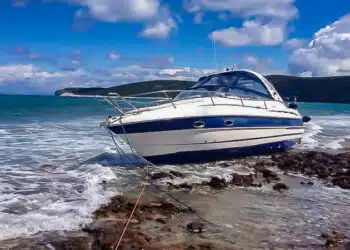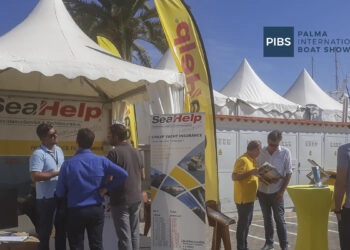Beware of the trap! Even if in the meantime many media suggest that the entry into Europe’s most popular vacation countries such as Italy, Croatia or Slovenia is currently almost possible again without any problems, there are still some quibbles with the entry into Italy, which must be settled in advance, so that it does not come to unnecessary problems during the trip. Dangers already lurk during transit through Italy, a route that many yacht and boat owners choose on their way to Istria and back: Here, even transit passengers must register on the relatively unknown portal at the “European Digital Passenger Location Form (dPLF)“, even if they only use the highway between Tarvisio and Trieste for transit.
Controls in Italy not known so far
Of course, you have to register here even if the actual destination is Italy. This is usually not controlled, but no one knows for sure whether a resourceful Italian policeman sees here an additional opportunity to improve his own fine statistics a little. Therefore, it is better to satisfy the Italian legal requirements beforehand with a few clicks on the Internet, instead of paying afterwards.
It is better to leave the notification to the health authorities to Marina
Furthermore, to enter Italy, you need a PCR or antigen test, no older than 48 hours, and also registration with the local Italian health authority ASL. While most vacationers still take care of the testing procedure in their home country, you should be aware of the contact the marina or the accommodation provider who knows the local regulations and conditions better and ask him to take care of this part for the guest. So then the stay can start stress-free.
A tip from the Italian Embassy in Berlin: Since the entry regulations often change again and again in short intervals, you should look immediately before departure on the homepage of the relevant embassy and inform there about the current provisions for entry to Italy.
Enter Slovenia: Antigen test is now sufficient
As of June 5, anyone entering Slovenia to get to their boat or yacht will not have to present a PCR test; a simple antigen test will suffice, as long as it was taken no more than 48 hours before entering Slovenia. There are also facilitations for vaccinated and recovered persons, as can be read at this link.
Entry Croatia: After initial vaccination already without testing
For entry into Croatia, a negative PCR test (up to 72 hours after sample collection) or an antigen test ( up to 48 hours after sample collection) is required. Also, a first vaccination with vaccine doses from various manufacturers (Pfizer, Moderna, Sputnik, AstraZeneca, which was at least 22 days, but no more than 42 days ago, exempts from the testing requirement. More can be found at this link. In general, however, it should be noted that an entry in EnterCroatia should always be made. It is also advisable to upload the forms needed at the border there to avoid longer waiting times when crossing the border.
Border congestion on Sunday when returning
Also one thing was shown by the experiences of SeaHelp members from the last few days: when returning from Croatia, enough time should be planned, because the Slovenian border guards control at the Croatian-Slovenian border again increased, especially on weekends. This is currently still considered an external Schengen border, but why every single passport has to be scanned when leaving the country, as has happened over the past few weekends, probably remains their secret in the end. As a result, there were long border congestion, as clearance was only one lane.













